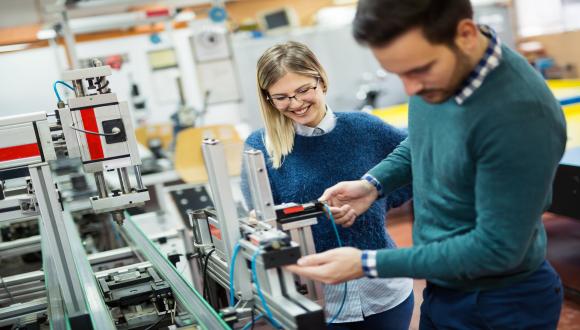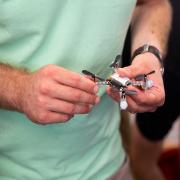M.Sc. in Mechanical Engineering
The role of mechanical engineers is continuously revitalizing. The education of mechanical engineers allows them to participate in a large variety of activities including research and development, design, manufacturing, engineering management, and maintenance. In addition to the classic discipline of mechanical engineering, the basic education of mechanical engineering allows mechanical engineering graduates to work in a broad range of disciplines including: aerospace engineering, marine engineering, nuclear engineering, civil engineering, material science, environmental engineering, mechatronics and robotics, electronic packaging, computer engineering, and bio-medical engineering.
Many forecasts about leading technologies for the coming years include:
Nanotechnology
Robotics
Alternative energy sources
Environment
Bio-engineering
These and other topics that are studied and developed in mechanical engineering are expected to contribute substantially to our quality of life, economy, and security. They also support significantly other popular technologies such as computer engineering. For example, the problems related to developing faster processors are related to material science, manufacturing processes, and heat transfer, all classic mechanical engineering topics. Mechanical engineering is therefore a fundamental discipline to many popular and newly exciting technologies.
Mechanical engineering is influenced significantly by development of computers. Cars, planes, ships, robots, manufacturing tools, power plants, air-conditioning systems, and even structures such as bridges, dams, and buildings, are operated, controlled and maintained using computers. Many industrial processes are controlled by computers and a growing part of design and development processes is supported by computers. The new area of mechatronics that integrates mechanics, electronics and computers is also a byproduct of the growing importance of computers in our life.
The up-to-date study program and advanced education and research laboratories allow students to acquire knowledge in these areas and be prepared to deal with, participate, and contribute to their future developments.
The School of Mechanical Engineering offers graduate students a broad choice of specialization areas, including:
Design
Fluid mechanics
Solid Mechanics
Heat & mass transfer and energy
Environment
Systems
Faculty members are ready to assist students in choosing study tracks and courses in the offered fields of research, including courses offered outside of the School.




